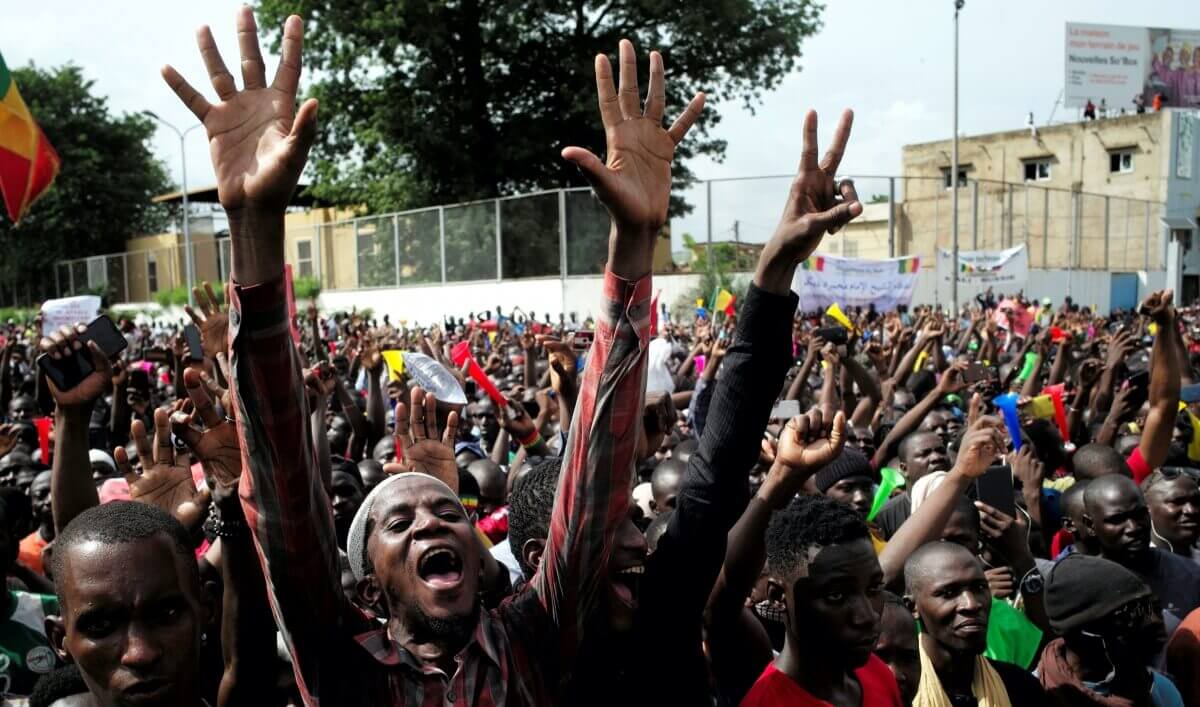Violent protests continue to rock the nation of Mali as demonstrators demand the resignation of President Ibrahim Boubacar Keïta and the establishment of a new constitutional court. Thus far, efforts at mediation have failed, despite the efforts of Nigeria, Morocco, and the Economic Community of West African States (ECOWAS).
In early July, President Keïta dissolved the country’s constitutional court in an attempt to calm protests. In a televised address, Keïta said, “I have decided to repeal the licences of the remaining members of the constitutional court.” He went on to say: “This de facto dissolution of the court will enable us, from next week, to ask relevant authorities to nominate new members so that the reformed court can quickly help us find solutions to the disputes arising from the legislative elections.”
Opposition to the court rose after the body overturned the provisional results of parliamentary elections in April, which enabled members of Keïta’s party to win their eats. There were also allegations of “vote-buying and intimidation”, and opposition leader Soumalia Cissé was kidnapped.
This unrest has led to the creation of the June 5 Movement (5M), led by the powerful imam, Mahmoud Dicko. The 5M demands the dissolution of parliament, the resignation of Keïta, and the creation of a transitional government.
Amid this backdrop, Keïta decided to begin implementing some of the recommendations put forth by the ECOWAS, which entail re-running the contested legislative elections from March. The ECOWAS mediation team, led by former Nigerian President Goodluck Jonathan, also convinced Keïta to form a transitional, power-sharing government, under which the ruling government would hold 50% of the seats, and opposition parties and civil society groups would respectively be left with 30% and 20%.
In addition, Keïta also said he said he would dissolve the national assembly “without hesitation”, if he has the “constitutional means to do it without the risk of creating a constitutional vacuum”. Moreover, he even said that he was open to acceding to ECOWAS’ request to form a government of national unity.
However, Mali’s opposition has rejected Keïta’s concessions, saying they would settle for nothing less than his resignation. Nouhoum Togo, a spokesperson for M5-RFP, a “coalition of political, religious, and civil society leaders”, said, “We are not going to accept this nonsense. We demand his resignation, plain and simple.”
However, ECOWAS said that pushing for resignation is a “red line” that they are not willing to cross as they consider Keïta’s 2018 election victory to be “democratic and entirely legitimate”. The M5, on the other hand, do not trust Keïta to give them “meaningful influence” in a power-sharing, unity government. At the same time, they do not trust in ECOWAS to handle the current crisis.
Morocco, too, has attempted to mediate tensions between Dicko and Keïta, with foreign minister Nasser Bourita acting on the orders of King Mohammed VI. However, it appears that the 5M are no longer open to the idea of a transitional government, and will accept nothing less than the full and unconditional resignation of the current president. All efforts at mediation are thus likely to fall on deaf ears so long as Keïta remains in power.
Malian Protestors and Opposition Refuse Mediation and Transitional Government
The June 5 Movement will settle for nothing less than the President’s resignation.
July 21, 2020

Source: Matthiew Rosier/Reuters
